If you are planning a trip to Egypt, there is no doubt that you have a lot of questions. Should you hire a guide? What places should you visit? What do you need to pack? And the most popular question of all…is Egypt safe to visit?
We spent 12 days in Egypt at the end of December 2019. During this time, we visited Cairo, Giza, Luxor, Abydos and Dendera, Aswan, and Abu Simbel. For various reasons, we chose to drive along the Nile River from Luxor to Aswan, rather than taking a cruise, which I will address in this article. We learned a lot during our visit and have a lot of valuable information to share with you.
Since arriving home, we have received an overwhelming number of emails about safety and the expectations of a trip to Egypt. Tim has been answering these questions in great detail and we decided that it would be worth writing an article with answers to all of your questions.
Here are our Egypt travel tips. If you still have questions, let us know in the comment section at the end of this post.
Egypt Travel Tips
Where Should You Go?
Egypt contains some of the oldest, grandest sites in the world. Sure, everyone is familiar with the great pyramids on the Giza Plateau, but there is a lot more to Egypt than just the pyramids. The lesser known and more fun to visit pyramids in Saqqara and Dahshur are well worth the day trip from Cairo. You can also spend a day or two visiting the churches and mosques in Cairo, walking through Old Cairo, and getting a history lesson at the Egyptian Museum.
Alexandria, with its location on the Mediterranean Sea, makes a nice day trip from Cairo.
In Luxor, not only can you visit the exquisitely decorated tombs of the ancient kings and queens of Egypt, but there is also the enormous Karnak Temple and the Temple of Luxor. The West Bank contains so many tombs and temples that it takes days, yes days, to see all of them. It is one of the largest open air museums in the world.
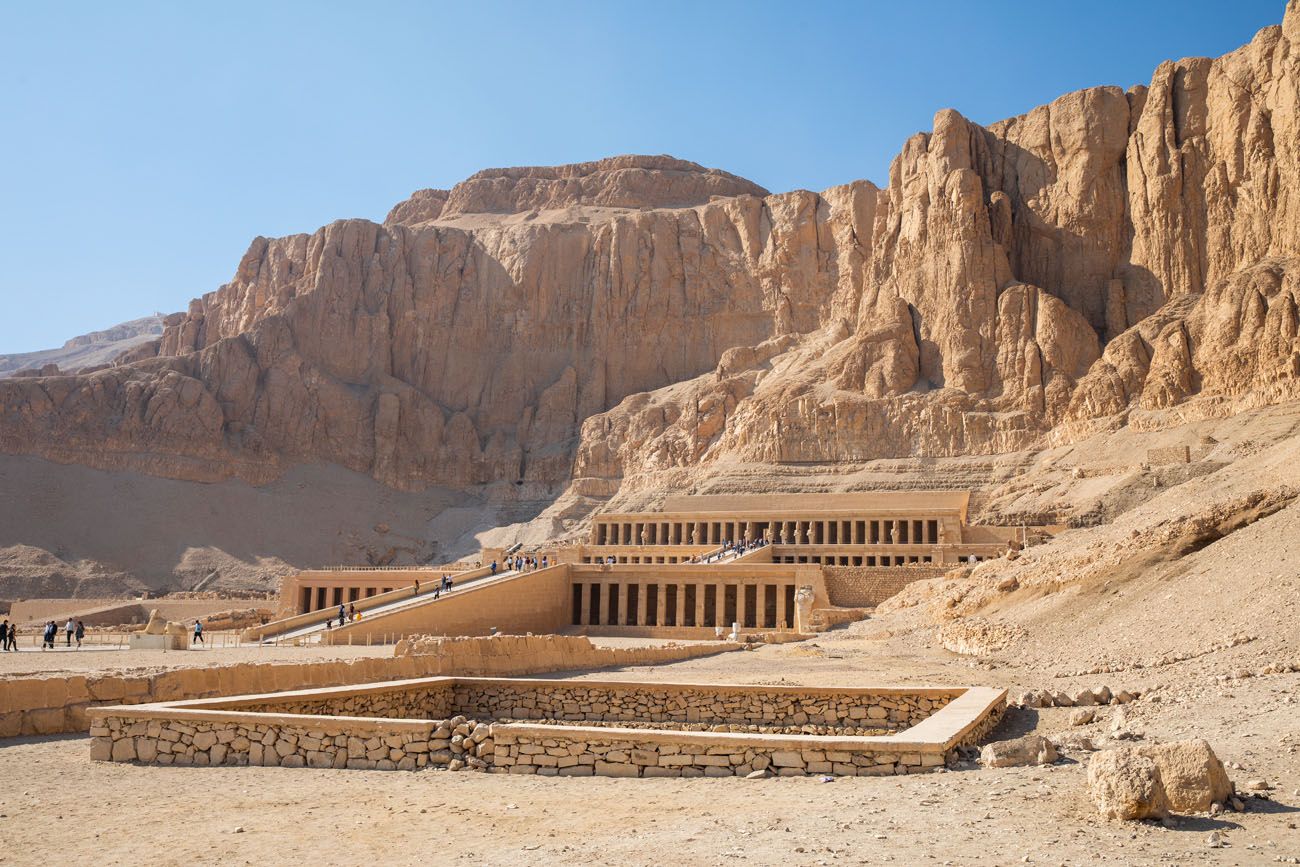
Temple of Queen Hatshepsut on the West Bank of Luxor
In Aswan, drift on the Nile in a felucca and visit the beautiful Philae Temple.
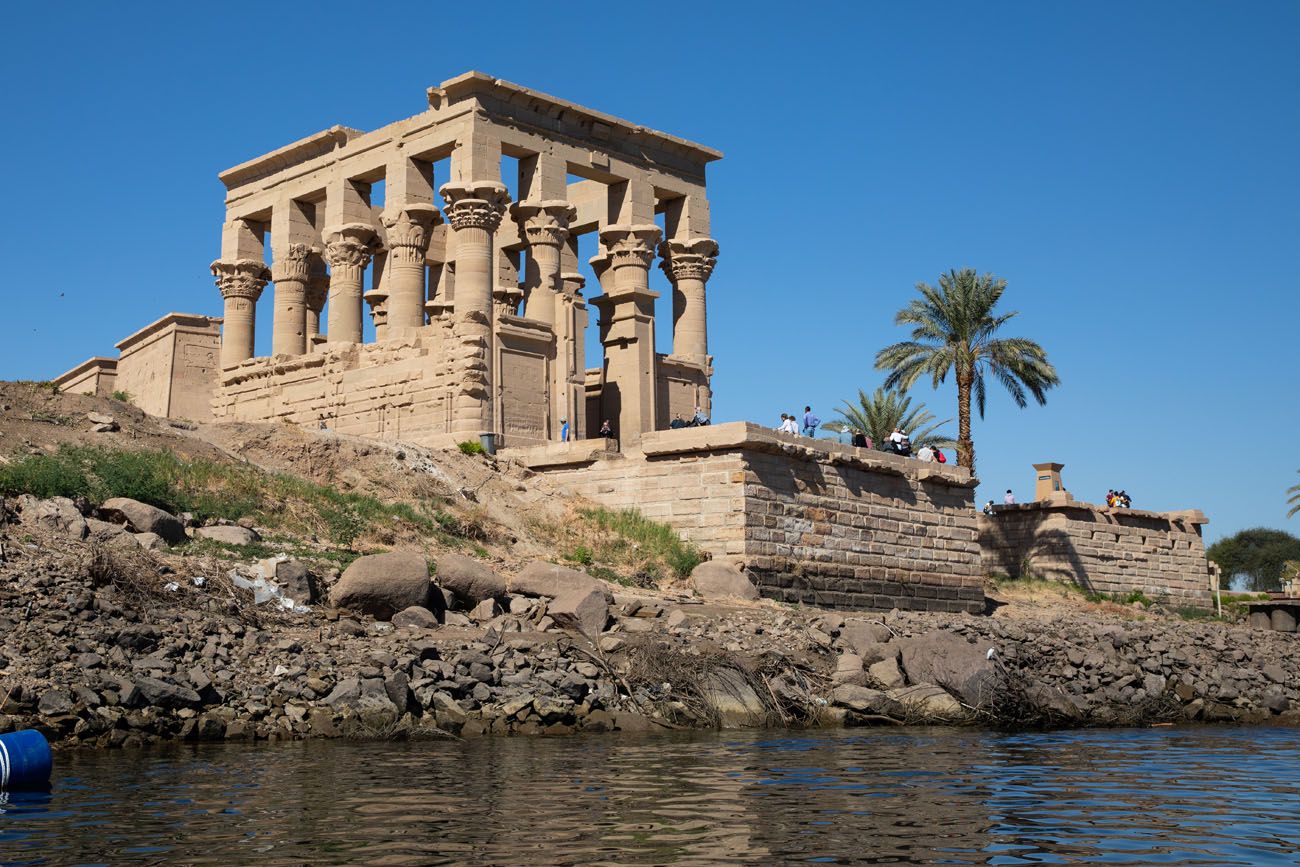
Philae Temple
Abu Simbel, a temple that is located near the border with Sudan, is well worth the time. This temple is dedicated to the Ramesses II. In the 1960’s the entire temple, including the mountain of rock it was carved into, was painstakingly disassembled and moved to higher ground, as water levels rose after the construction of the Aswan High Dam.
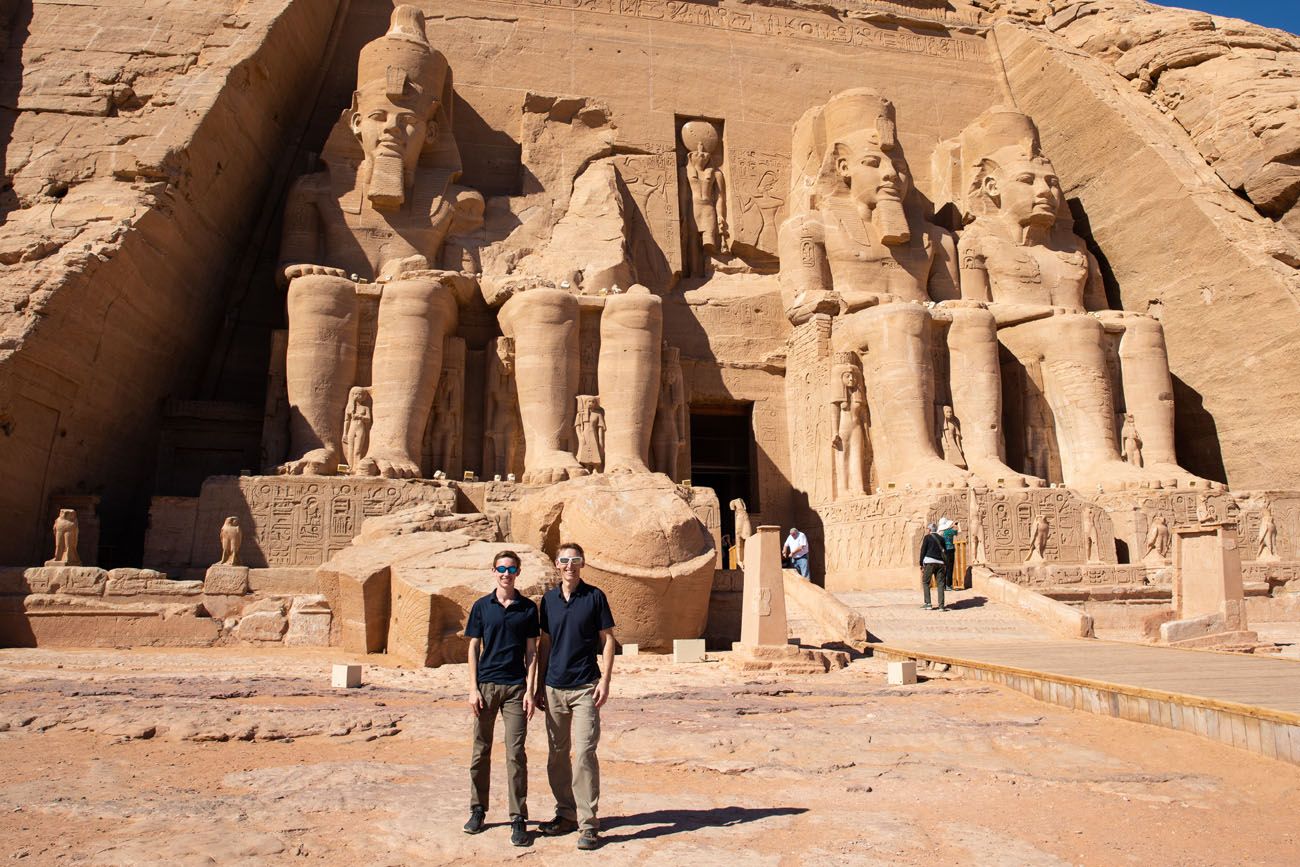
Tim and Tyler at Abu Simbel
If you want some chill time, check out the opulent resorts in Hurghada.
Finally, add some adventure to your trip by visiting an oasis in the Sahara Desert.
We didn’t have enough time to get to everything on this list, so hopefully you’ll see us back in Egypt within the next few years to explore some new places.
25 Amazing Things to Do in Egypt
Here are 25 wonderful experiences to include on your trip.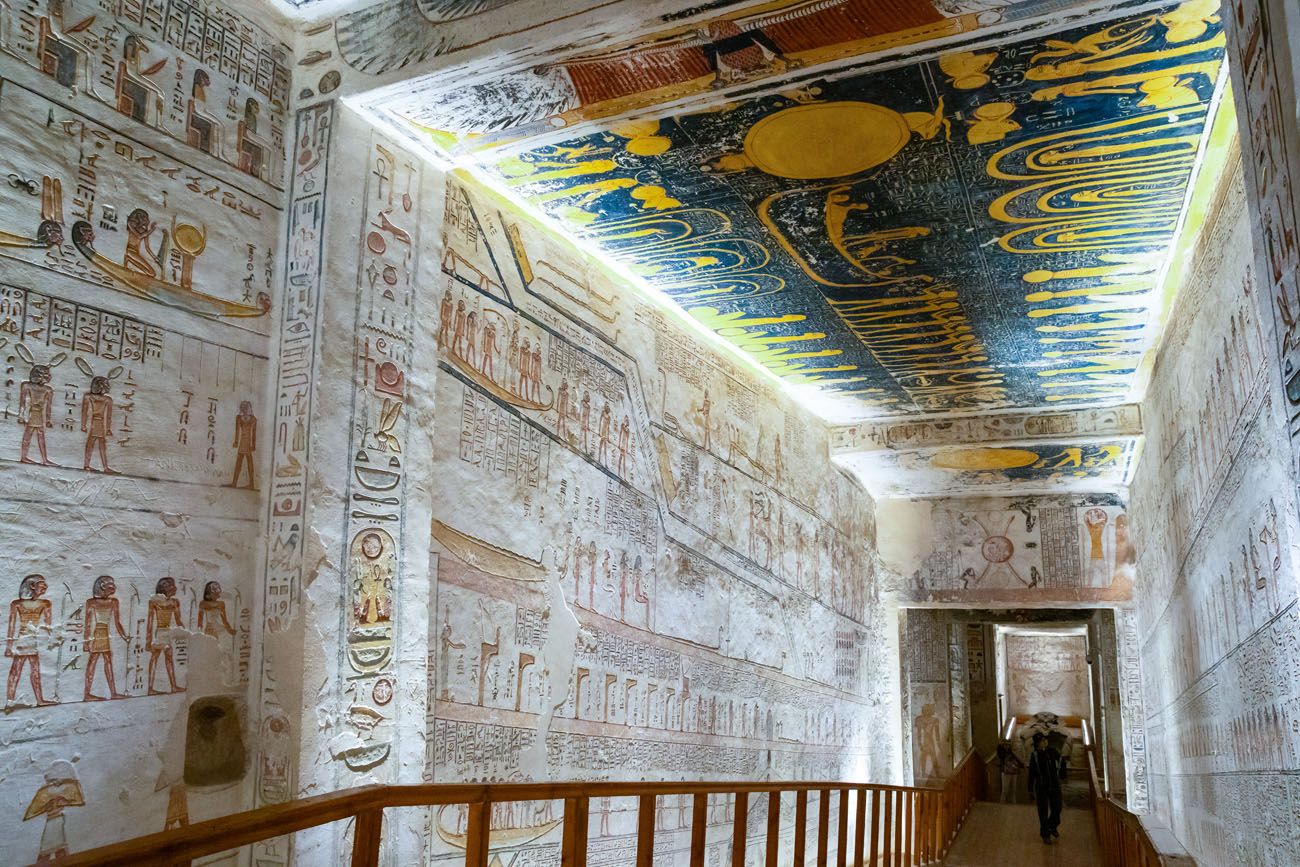
The tomb of Ramesses V and VI in the Valley of the Kings
When Should You Visit Egypt?
The best time to visit Egypt is the cooler months of the year: November through March. In the southern part of the country, at Luxor and Aswan, rain is unlikely. In Cairo, haze can be an issue in the morning during the winter months, so it’s best to time your visit to outdoor sites (such as the pyramids of Giza) to the afternoon hours. During the winter months, it can rain in Cairo and Alexandria.
Expect the biggest crowds in December and January.
During the summer months, temperatures can be oppressive. Temperatures can range from 40 to 55°C (104 to 130°F). In Luxor and Aswan, this is a dry heat, but up north around Cairo and Alexandria, the humidity can make the heat feel even worse.
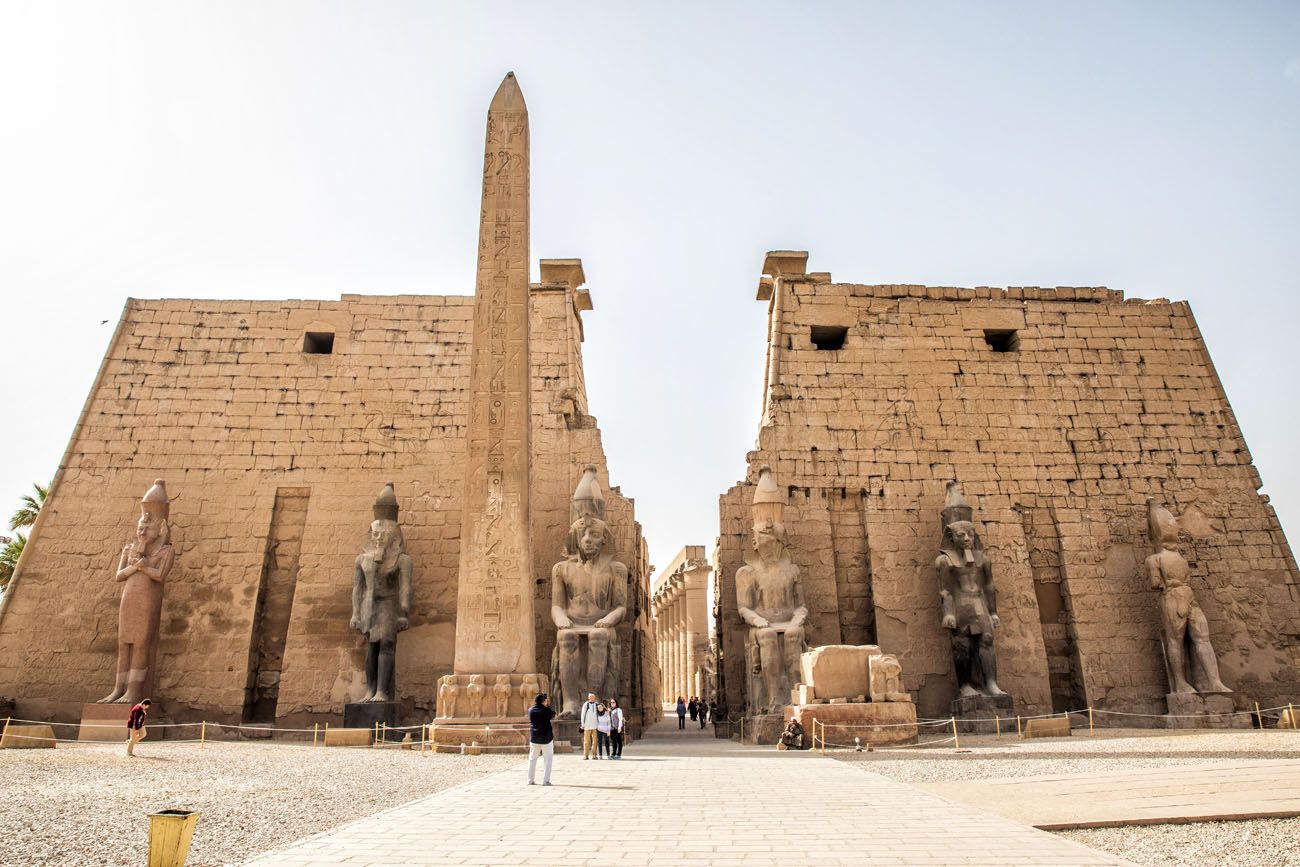
Luxor Temple
Visa on Arrival
Most visitors to Egypt will need a Visa.
If you are a citizen of the USA, the European Union, Australia, New Zealand, Japan, Norway, Russia, and a handful of other countries, you can obtain a Visa on Arrival at the airport.
We recently received an update that Canadian citizens have to apply for a Visa with the consulate before arrival.
In the Cairo International Airport, just before passport control, there is a bank window where you will purchase your visa. It costs $25 USD and you will pay cash. Take the visa and your passport to passport control. The officer will add this visa to your passport and stamp your passport. It’s a very easy process.
SIM Cards
If you want a SIM card for your trip to Egypt, there is an Orange kiosk in the Cairo International Airport (near baggage claim) that can provide you with a SIM card. The process is fast and relatively cheap. You will need to show your passport and make sure that your phone is unlocked before your trip to Egypt. We had great cellular service throughout Egypt with Orange.
We have also had very good luck using Airalo, which is a company that sells e-SIM cards, in various countries in Europe. You can purchase your e-SIM prior to your trip and activate once in Egypt. This saves you time, since you don’t have to buy a SIM card once you arrive in Egypt. We have not used Airalo in Egypt but our experience in Europe has been fantastic, even in more remote areas.
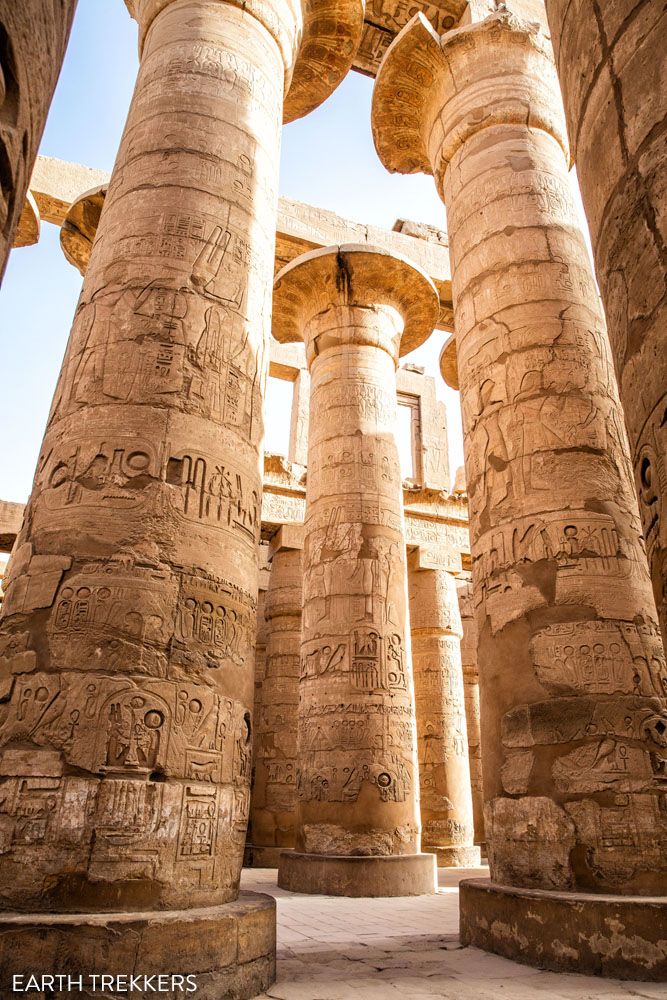
Inside Karnak Temple in Luxor
Is it Safe to Drink the Tap Water?
Do not drink the tap water, brush your teeth with the tap water, or eat uncooked foods that may have been washed with tap water (such as lettuce, uncooked fruits & vegetables, etc.). We used bottled water for drinking and to brush our teeth.
Bring Your Own Toilet Paper
The bathrooms at the tourist sites are not typically stocked with toilet paper, so it is a very good idea to bring some with you.
Be Prepared to Tip the Bathroom Attendant
In Egypt, most bathrooms have an attendant, a person who keeps the stalls clean, provides a small amount of toilet paper, and hands you a towel to dry your hands (in some cases). It is customary to tip this attendant before or after you use the bathroom. It doesn’t have to be much, 5 EGP is sufficient. But small change can be hard to come by, so save this for when you need to use the bathroom.
Be Prepared to Tip… A Lot
There are numerous scenarios when you will be expected to tip for a “service” that was provided.
When visiting tombs and temples, the attendants will offer to take a photo of you. If you agree, you are expected to give him a small tip in return. If you take a photo of a camel or if you take a photo of a tomb attendant, you will also be expected to give a tip. After camel rides, felucca rides, etc., it is also expected that you will give a small tip at the end of the experience.
Tipping is always optional, but there is an expectation for it.
How much you tip depends on the service provided. For things like photos, we gave the person our spare change or 5 to 10 EGP. For tips after meals and things such as a camel ride, 5 to 10% of the price what you paid is customary.
Tipping is not expected but it is appreciated in restaurants.
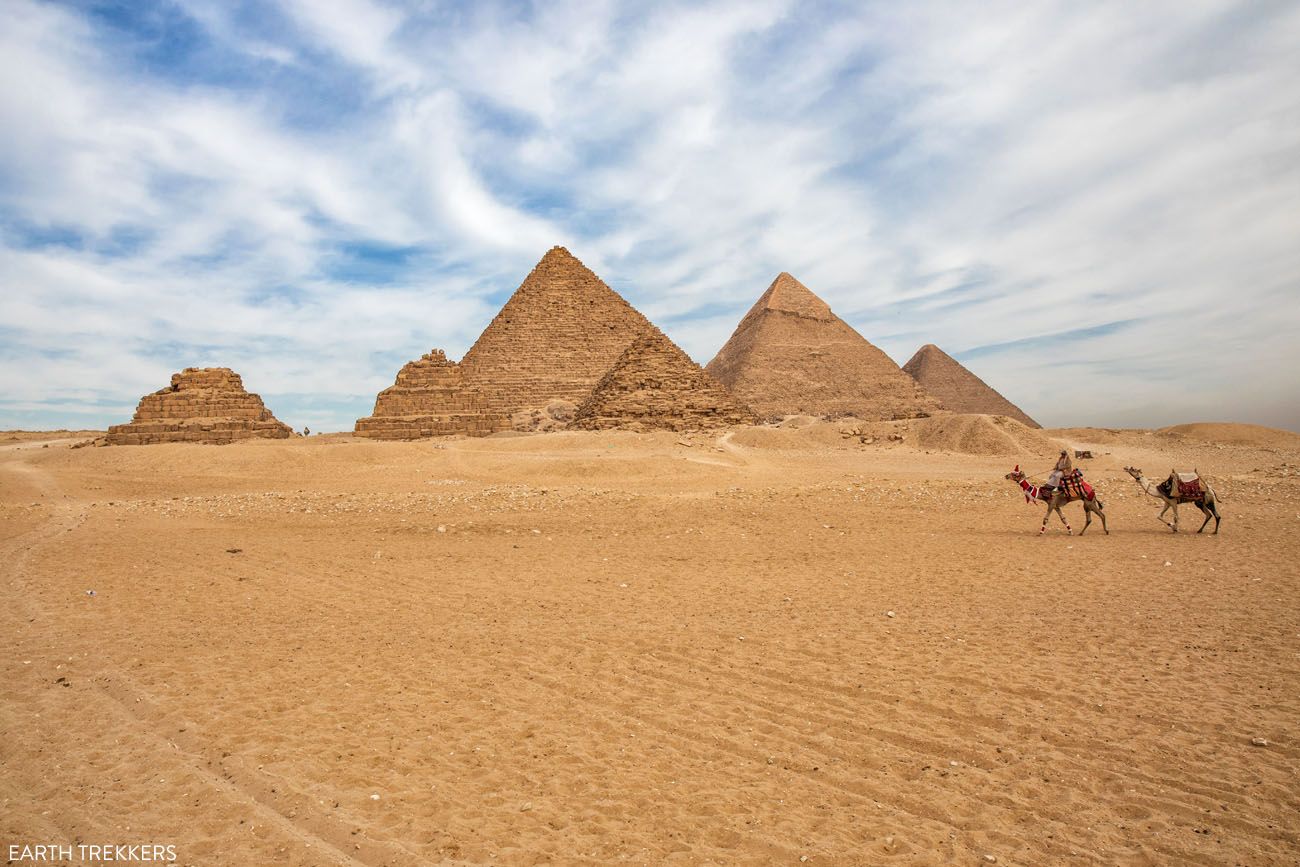
Pyramids of Giza
Using Cash in Egypt
In Egypt, the currency is the Egyptian pound (EGP). $1 USD is equivalent to 51 EGP (as of June 2025).
Until 2023, all tourist attractions and activities needed to be paid for in cash. Now, attractions are only accepting credit cards. I still recommend having some Egyptian pounds, for tipping and to make purchases in markets, but visitors no longer need to carry huge amounts of cash.
We withdrew all of our Egyptian pounds from ATM’s in Egypt. There are ATM’s in the Cairo International Airport, so this is a great place to make your first withdrawal. Our hotels in Luxor (the Hilton) and Aswan (the Movenpick) had ATM’s and we used these every day to withdraw more money.
The maximum any ATM would ever allow us to withdraw per transaction was 3,000 EGP. On some occasions, we had to use the same ATM card multiple times in order to have enough cash for the day.
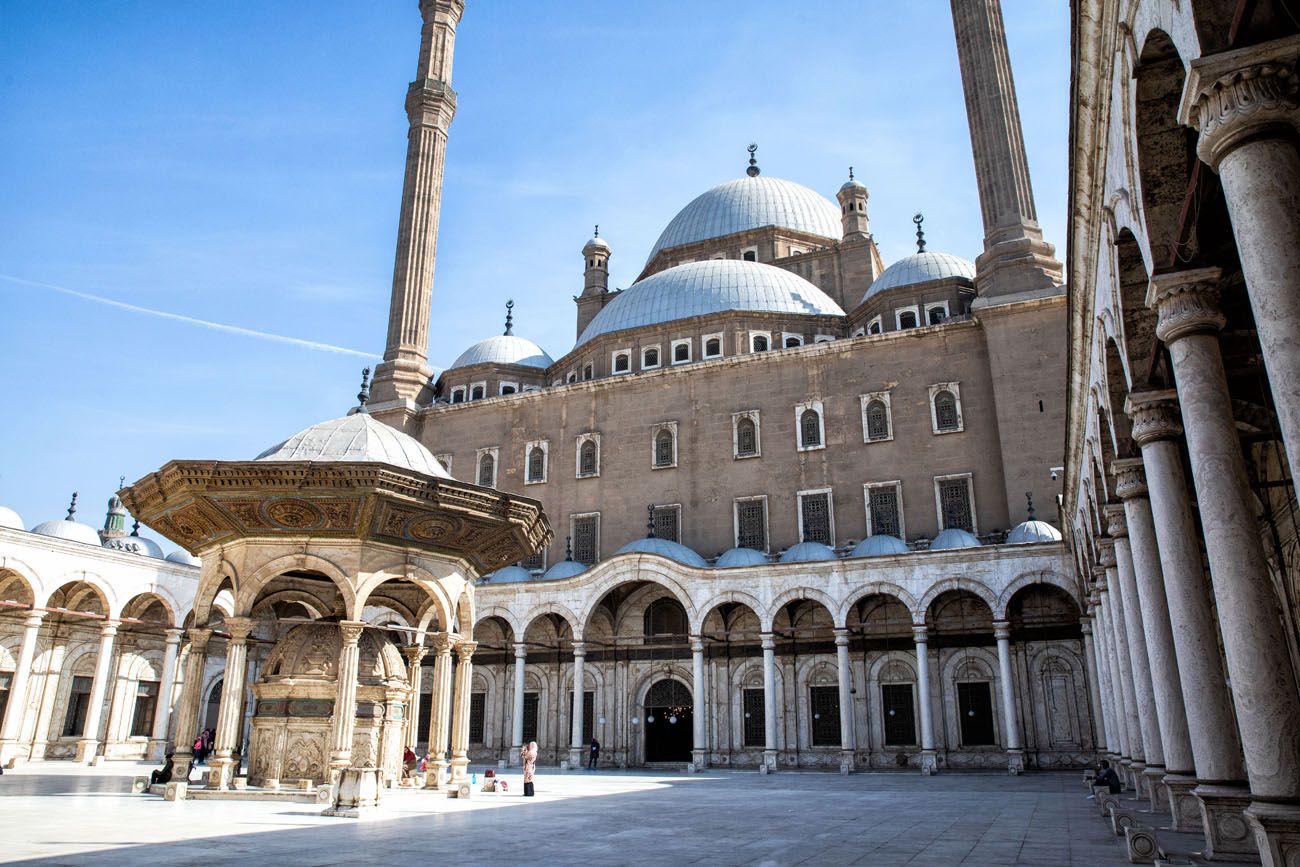
Mosque of Muhammed Ali in Cairo
Discounts on Entry Tickets for Children and Students
If you are traveling with children, they might qualify for a discount ticket. One of our guides told us that at most tourist sites (museums, temples, tombs, pyramids, etc.), kids 5 years and younger can get free entry. Children ages 6 years to 12 years get a 50% discount. And those aged 12 to 30 can qualify for a student discount (50% discount) if they have a valid International Student Identification Card (learn more here).
You must bring the plastic card with you because a copy or a photo of the card is not typically accepted.
We did not know about this Identification Card before our visit. Tyler and Kara were 16 and 15 years old during our visit. Sometimes, the attendant would accept their passport as identification, but it didn’t always work so sometimes we had to pay full price.
If you are traveling with kids under the age of 12, it might be a good idea to bring a passport or another form of identification to prove their age. Some attendants were very strict with offering discounted tickets.
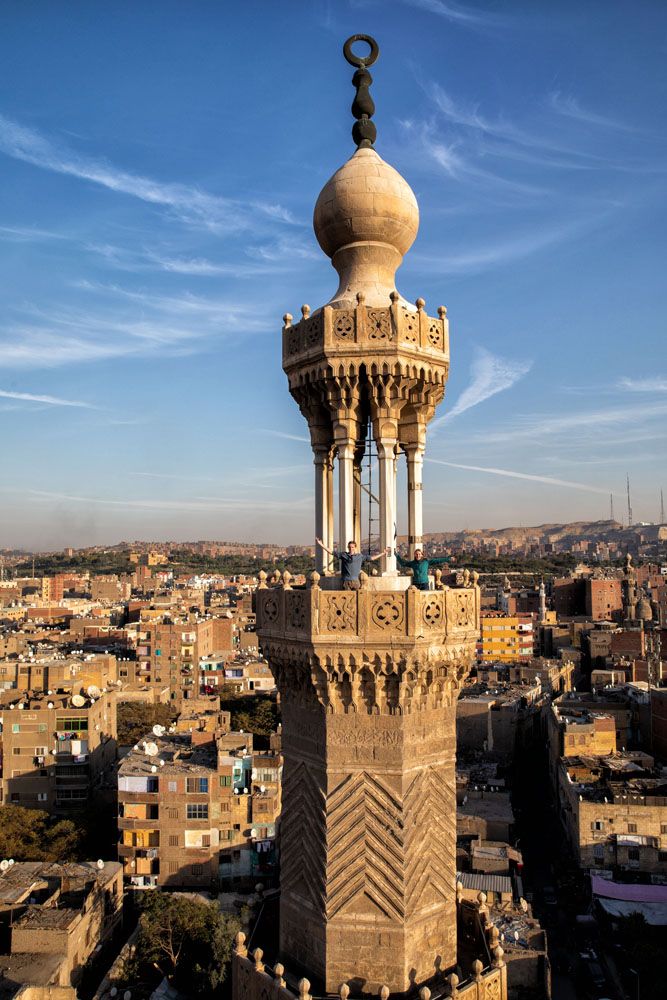
Tyler and Kara at Bab Zuwayla in Cairo
Luxor Pass and Cairo Pass
The Cairo Pass is a ticket that allows you to visit all of the main sites in Cairo and Giza. The Luxor Pass is ticket that allows you to visit all of the archaeological sites on the East Bank and West Bank of Luxor.
These are expensive passes (costing $130 to $250 USD, depending on the pass) so they are not worth it for everyone. But if you plan to spend a lot of time in either Cairo or Luxor, they could save you some money.
Luxor Pass and Cairo Pass: Are They Worth It?
What are the Luxor and Cairo Passes, how to get one, and are they worth it?Photography Passes
The rules for this change constantly.
Recently, the rules have changed, allowing tourists to take photos with their cellphones in most tombs and temples for free without a photography pass.
We have also heard reports in 2023 that photography passes might be a thing of the past. Many people have been writing in that DSLR cameras are now allowed and no photography passes are necessary.
For most people, taking photos with a cellphone is sufficient. We typically purchased the photography pass at each site (this was in 2019), since it’s important to capture great photos for this website, but honestly, in some tombs, our iPhones were almost as good as my DSLR.
If you plan to use a tripod, there is an additional fee for this (typically 20 EGP).
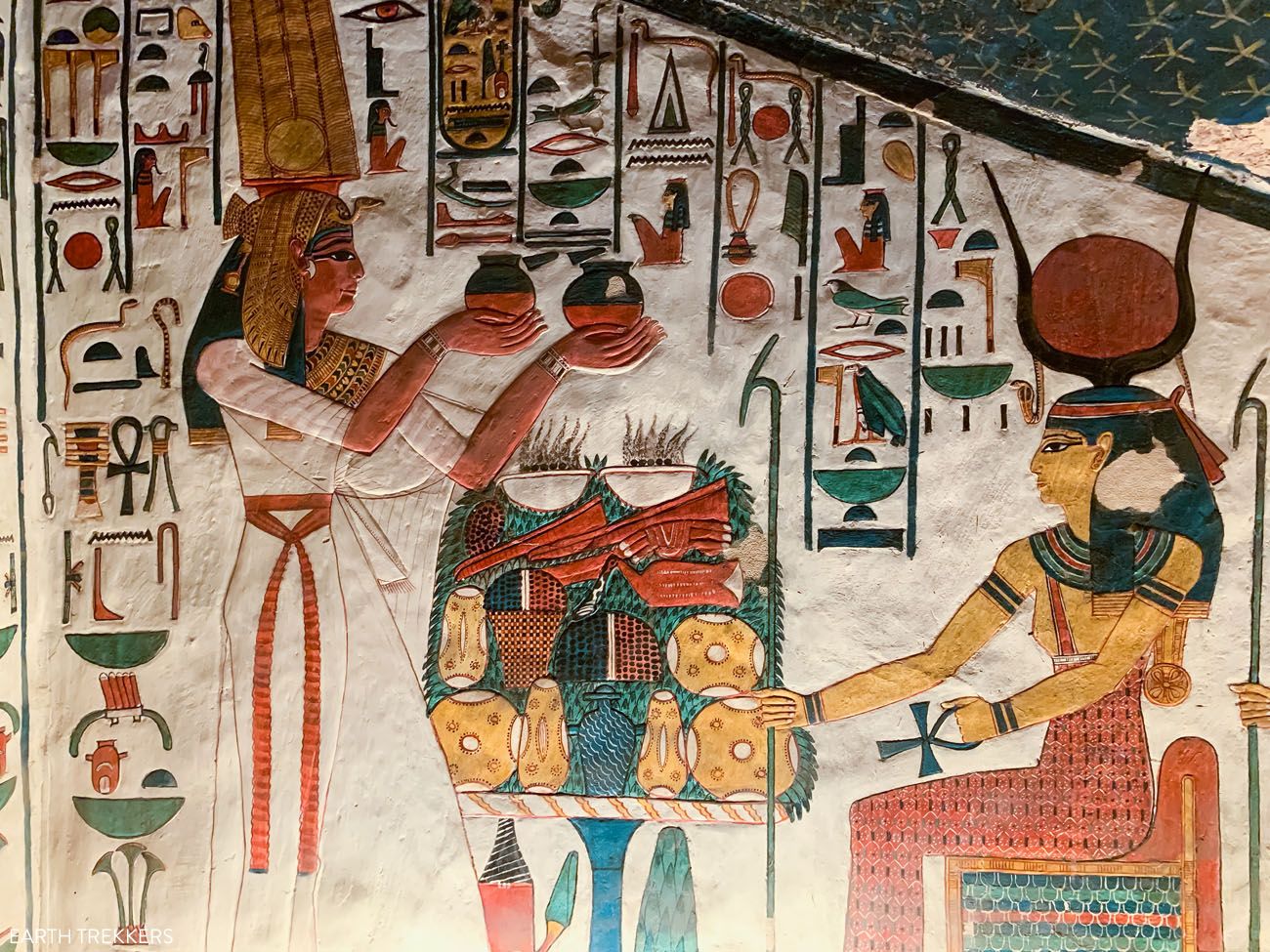
Inside the tomb of Queen Nefertari in the Valley of the Queens
How Much Does it Cost to Visit Egypt?
Traveling through Egypt is similar in price to traveling through Southeast Asia. If you are a budget traveler, you can see and do a lot in Egypt without spending a lot of money. And if you like the idea of adding in upscale hotels and a cruise on the Nile River, you can do so without spending a small fortune.
For more information, take a look at our article How Much Does it Cost to Visit Egypt?
Should You Rent a Car in Egypt?
We do not recommend driving in Egypt.
The roads in Egypt are congested and chaotic. Traffic rules are different in Egypt than in places like the United States and Europe, and at times, it almost seems as if there are no rules.
The streets of Cairo and Giza are so congested and chaotic that it is not worth the stress of navigating them yourself. Cars fill every available space on the road and there is no effort to paint lines on the road, since they would be ignored anyway. It is not unusual for tuk-tuk’s or motorbikes to drive against traffic on these roads, adding to the chaos.
All the while, it is an almost constant cacophony of car horns. The horn plays a vital role in friendly communication between drivers. There is no road rage here, everyone seems to be very patient even though they are sitting in some of the worst traffic we have seen.
There is a different flow and rhythm to the traffic in Egypt, and if you are not accustomed to it, driving can be stressful and difficult.
On the rural roads, there are security checkpoints and you need to be able to effectively communicate with the officers. We had a driver and a guide. Our guide conversed with the officers at these checkpoints in Arabic. It did not seem as if the police at these checkpoints spoke much English, so if you were on your own, getting through these checkpoints would be much more stressful than if you had a guide and driver.
Finally, the rural roads are just as crazy as the city roads, but in a different way. Congestion is lower but speeds are higher. These two-lane roads are treated as three lane roads. The center of the road is the passing lane, for both directions of traffic. That means you will play a lot of games of “chicken” with the oncoming cars. Meanwhile, you or your driver are keeping a lookout for donkeys, tuk-tuks, motorbikes, tractor trailers, and pedestrians.
We highly recommend hiring a driver, rather than renting a car, for your trip to Egypt.
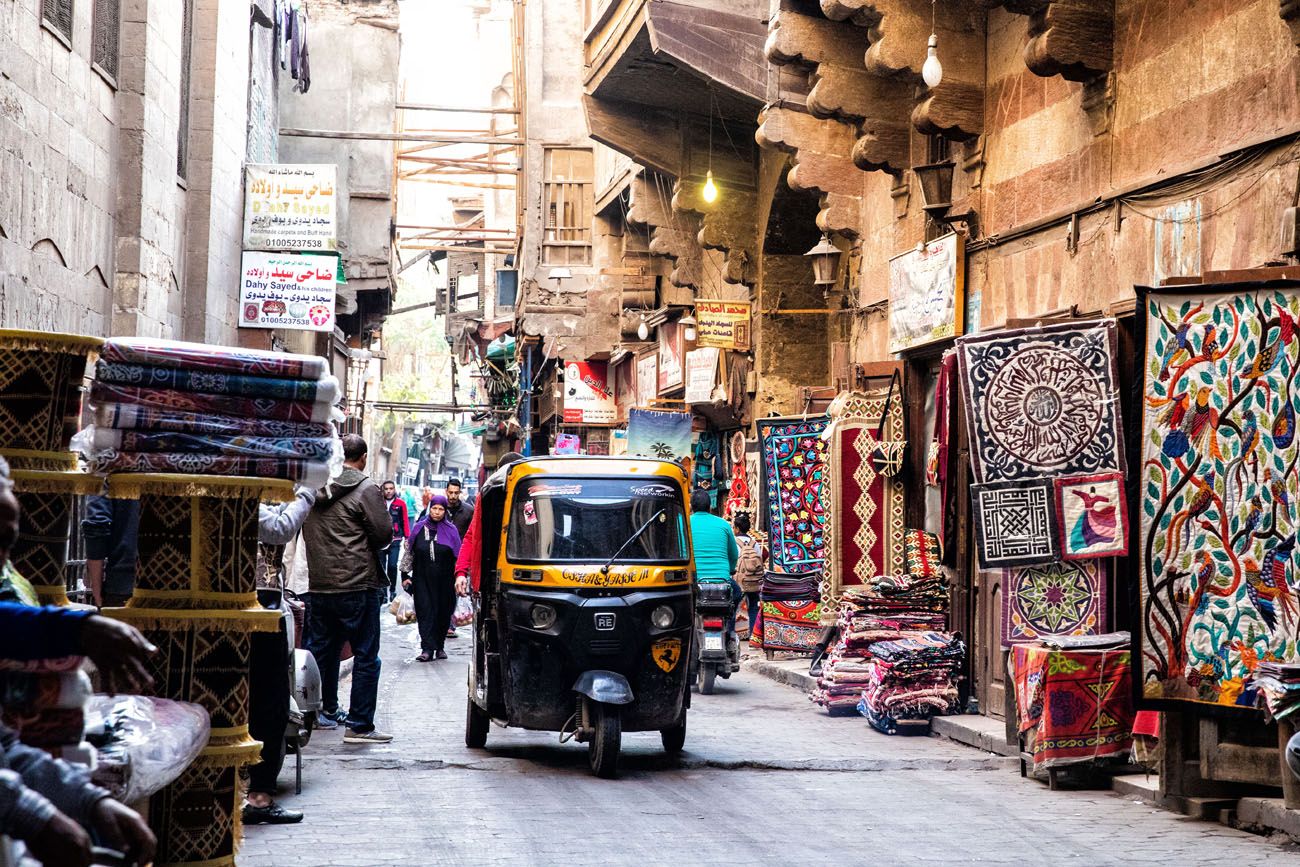
Tuk-tuk in Old Cairo
Should You Hire a Tour Company/Egyptologist?
Typically, we prefer to travel independently. Rarely do we book a tour. And never do we take packaged, multi-day tours when we travel.
However, with concerns about safety and hearing “horror” stories about how independent visitors felt like they were constantly hassled for tips, we decided to hire a guide.
After a lot of research, we hired the company Egypt Tailor Made, based on their impeccable reviews on Trip Advisor. Basically, we took nine of their day tours and strung them together to form a customized itinerary. They exceeded all of our expectations. One of the reasons our trip to Egypt was so positive is because of the exceptional service this tour company provided.
For each day of our trip in Egypt (with the exception of our day trip to Abu Simbel, which we did independently), we had a guide and a driver. This took away all of the hassles of transportation, negotiating fees for certain services, and knowing the best times to visit each place. Our guides would shoo away persistent shop owners and introduce us to local foods that we would never have tried, had we been on our own.
We could just sit back and enjoy the trip and let our guides handle the logistics.
Since we traveled in a small group (it was just the six of us…the four Earth Trekkers and our moms), we got personalized attention and we could easily customize what we did each day.
If you like the idea of taking the hassle out of getting around Egypt and want knowledgeable guides to teach you about the places you are visiting, it is worth the small extra expense to hire a guide and driver in Egypt.
Is a Nile Cruise Worth It?
We did not cruise the Nile River for various reasons.
For one thing, it’s expensive, especially to cruise with a company that gets good reviews. Plus, on a cruise, you have very limited time at each location. Most of your time is spent drifting along the Nile River, which I am sure is an amazing experience, but we wanted more time at each site.
On a cruise, you tend to do your sightseeing on a set schedule with a large group of people, and that was not the experience we wanted.
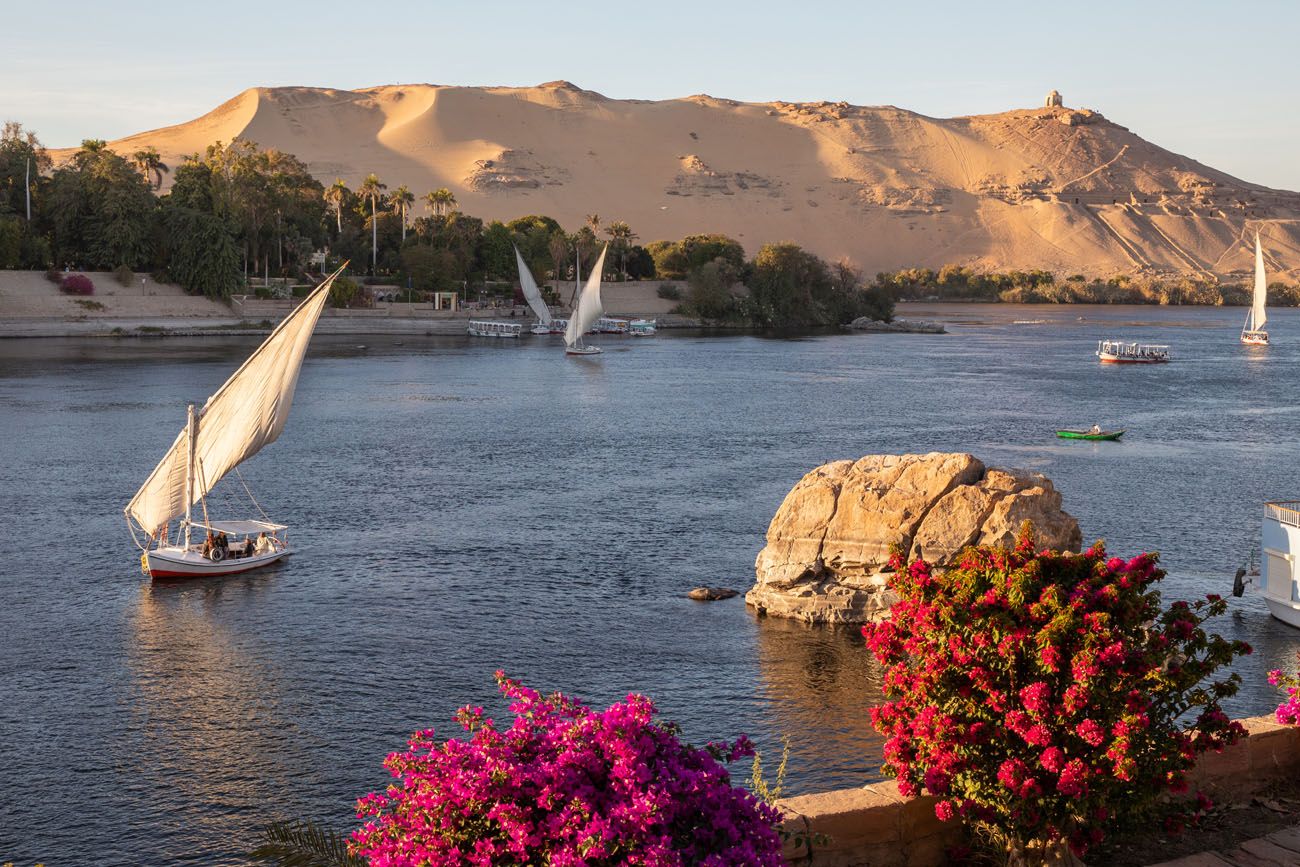
Feluccas on the Nile River in Aswan
We booked hotels in Luxor and Aswan with views of the Nile River, so that we could still get the “Nile experience.” In Aswan, we frequently rode the motorboats on the Nile River and we took a sunset felucca cruise. These boat trips, along with our hotel stays, made us feel like we had a great Nile River experience. Plus, we got to spend as long as we wanted at each site, in our private group.
We don’t feel like we missed out on anything by not taking a Nile Cruise.
Is Egypt Safe?
Safety is a big concern for most people when deciding whether or not to visit Egypt. We were no different.
In recent years, tourism to Egypt has increased and more and more visitors are coming home with reports of how safe they felt while in Egypt.
So, we booked our trip with a little bit of trepidation. During the months leading up to our flight to Cairo, we kept an eye on the US State Department website and we wondered, once here, how safe would we feel?
Never once did we feel unsafe. Yes, there is a big police and military presence. Seeing guards with rifles and driving past numerous police checkpoints on the roads can be unnerving at first. Every time you enter a hotel or enter a tourist site, you will pass through a metal detector.
But all of this is being done to keep tourists safe. Tourism is a very valuable industry in Egypt so a lot is being done to protect tourists.
The Egyptians are some of the friendliest, most welcoming people we have met. They would approach us, ask us how we were enjoying our visit to Egypt, and ask us to spread the news on how safe we felt.
Egypt is a big country, and safety depends a lot on the area that you will be visiting.
If you stick to the main tourist areas, which include Cairo, Alexandria, Hurghada, Luxor, Aswan, and Abu Simbel, Egypt is safe. During our visit, we never felt unsafe in Egypt. However, we did stay in the popular touristy regions and we traveled with a guide and driver.
Places to avoid include the Sinai Peninsula and the western Sahara Desert, near the border with Libya.
Here are some things to be aware of when traveling through Egypt:
Security Checks: As you enter most sites, as well as many hotels, you will go through security. You will put your bags through an x-ray machine and you will walk through a metal detector (similar to airport security but not quite so rigorous).
Military and Police Presence: It is common to see armed guards and armored vehicles at the sites you will be visiting and along the roadways. They are there to protect you and the site you are visiting.
Convoys: Prior to our trip I had read that when hiring a driver for road trips, for example from Luxor to Abydos (or Luxor to Aswan, or Aswan to Abu Simbel), you have to leave at designated times in order to travel with other vehicles, all in a convoy escorted by police. That no longer applies and tourists no longer travel in convoys. They now rely on the security checkpoints along the roads to help ensure your safety. However, we did still receive a police escort several times on the drive between Luxor and Abydos.
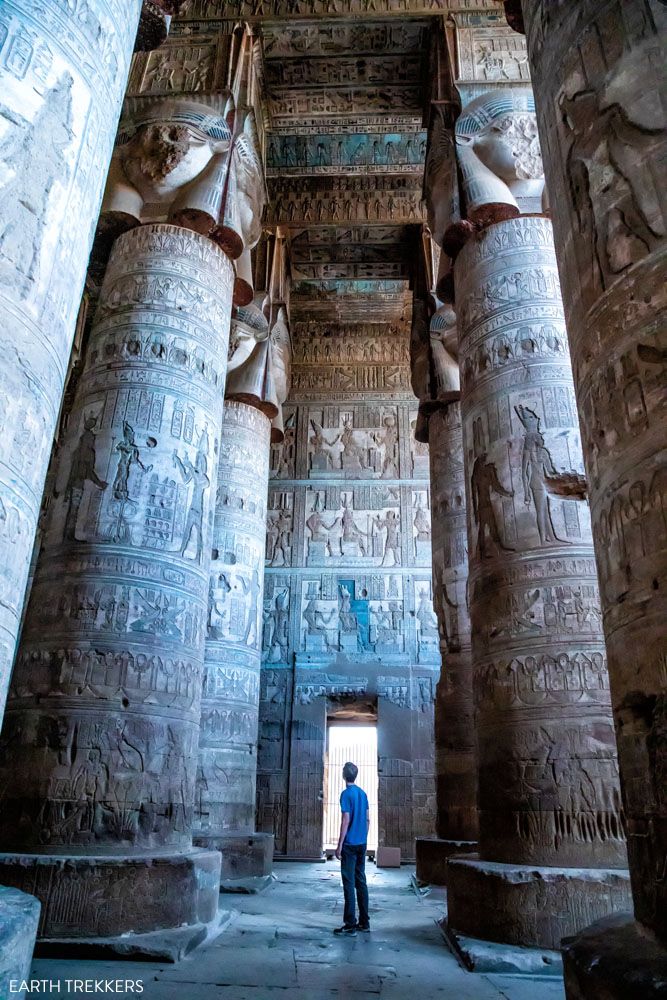
Hathor Temple in Dendera
A Few Essentials for Your Packing List
Here is a quick checklist of things to pack for your trip to Egypt. Some of these might be obvious (such as sunscreen), but some of these may not be things that you have thought of.
- Backup Cash: bring some backup cash in USD or Euros just in case you have any issues with the ATM’s or if you run out of EGP. Include small bills like $1 USD that you can use for tipping, if you run out of small Egyptian bills.
- Snacks: especially if you have long driving days and for big sightseeing days, such as on the West Bank of Luxor
- Swimsuit
- Sunscreen
- Sunglasses
- Power Adaptors: we brought type C and type E/F and we primarily used Type E/F
- Toilet Paper
- Extra Toothbrushes: just in case you rinse one with tap water
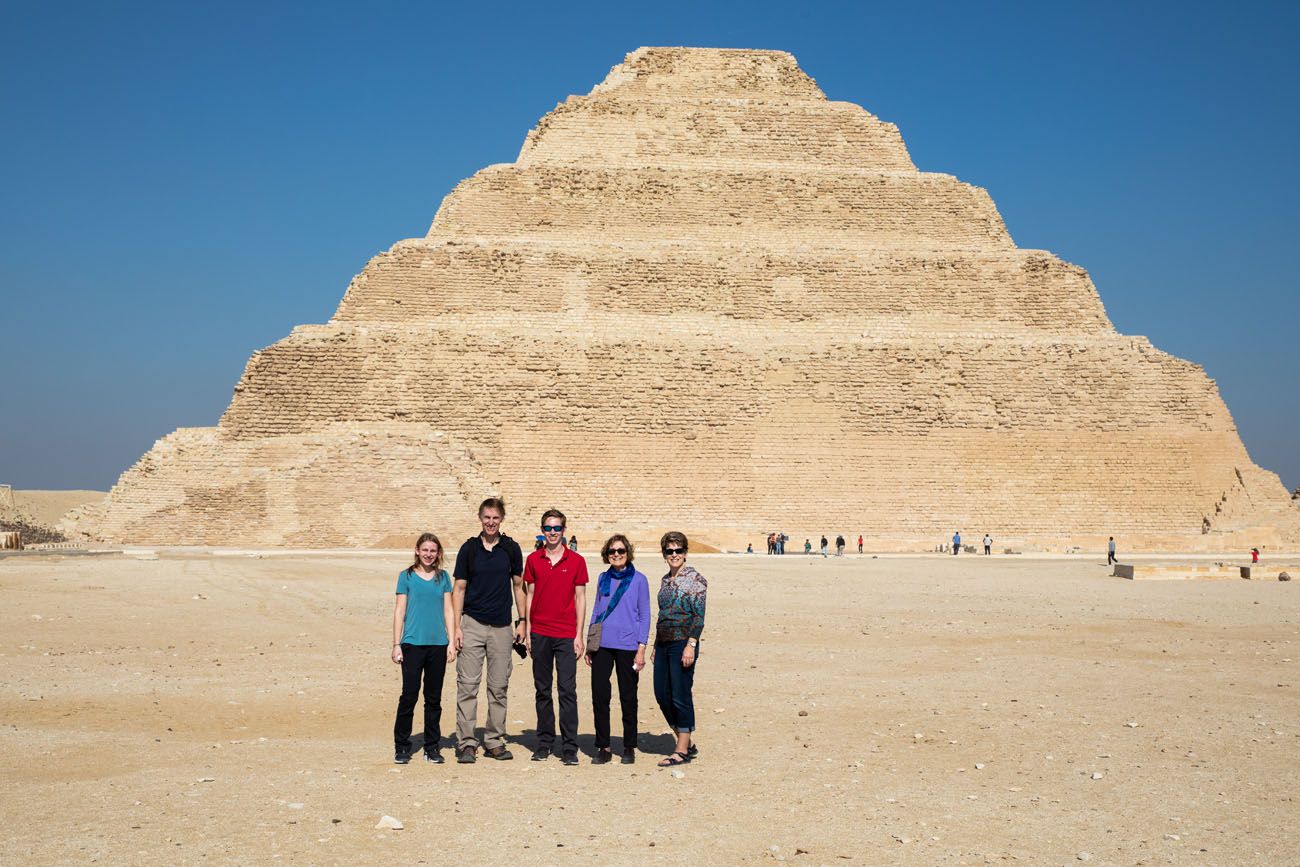
The Step Pyramid of Djoser in Saqqara
In Conclusion
Egypt is a wonderful country to add to your travel wish list. Go now, while tourism is still relatively low. Take advantage of lower crowds and lower prices…tourism is picking up and I expect that trend to continue for the next few years.
If you have any questions that we did not address in this article, let us know in the comment section below.
More Information for Your Trip to Egypt
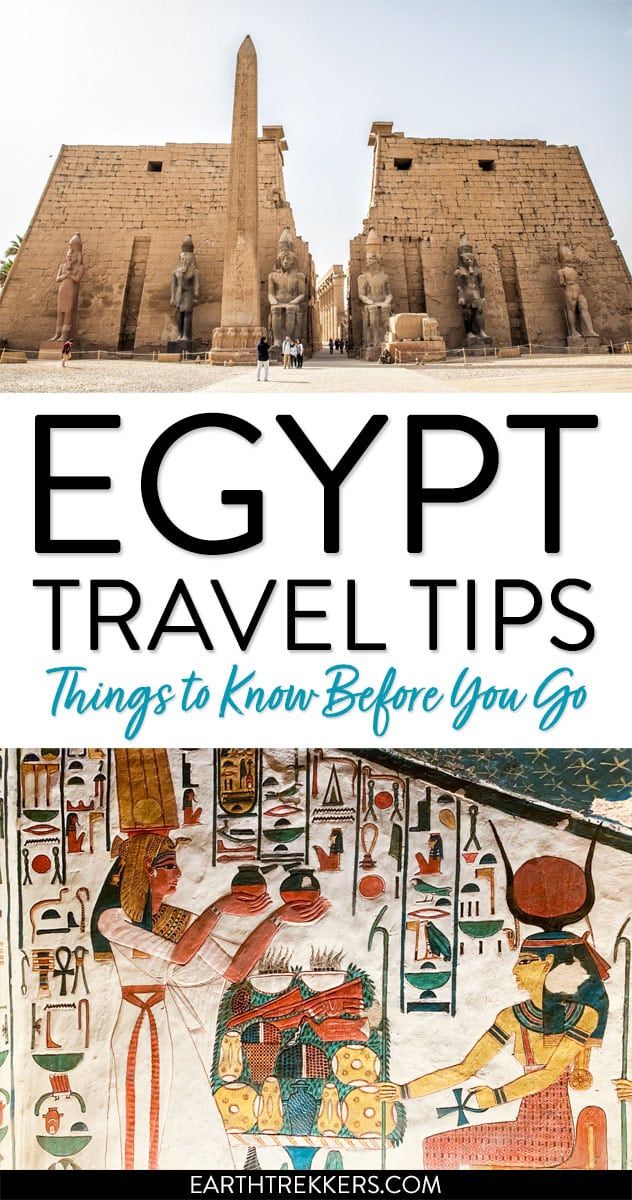
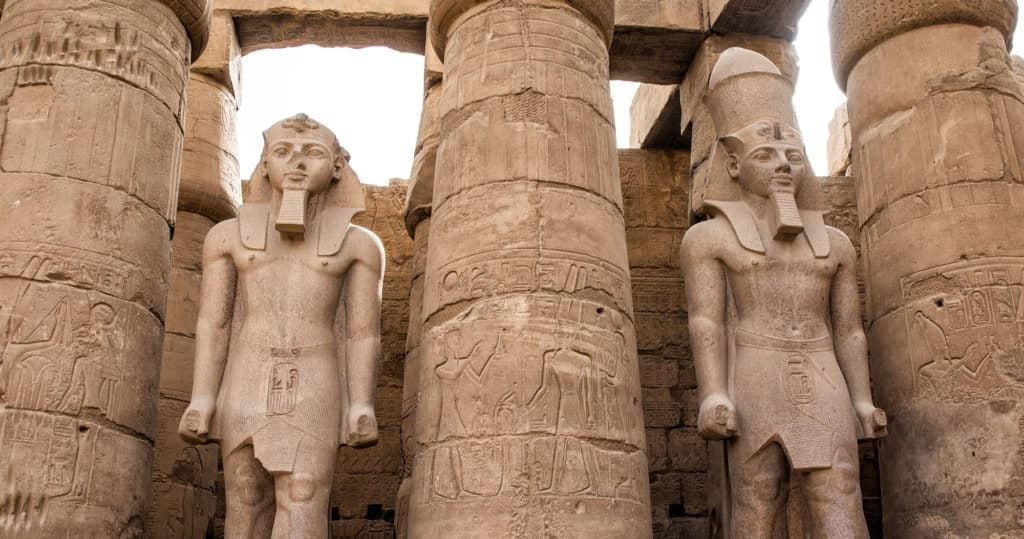
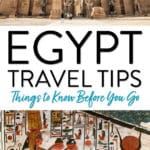
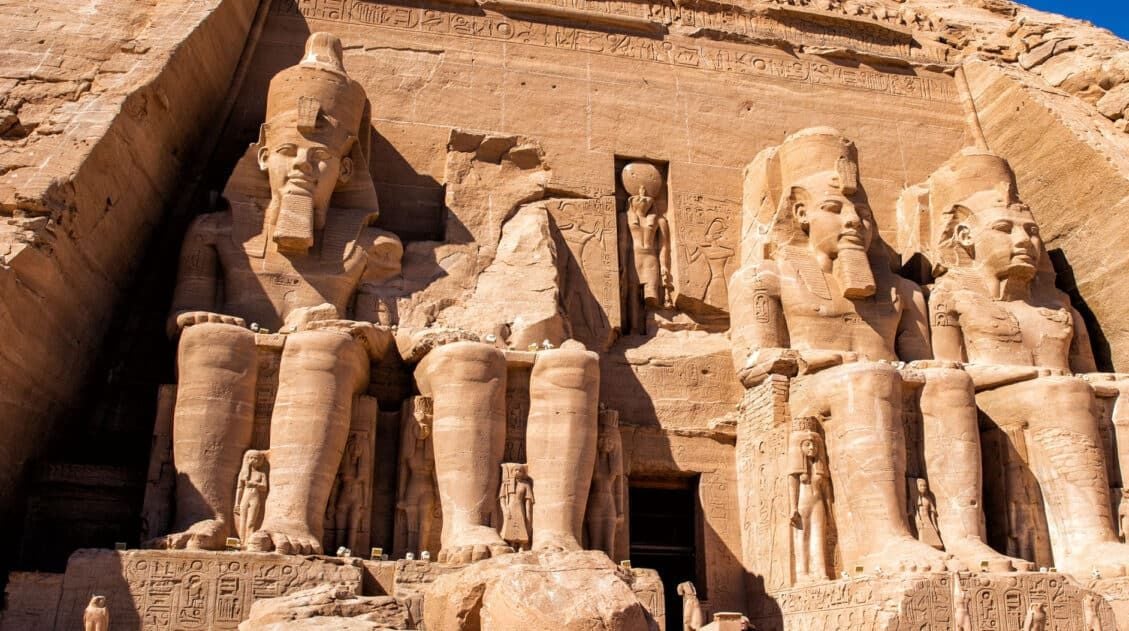
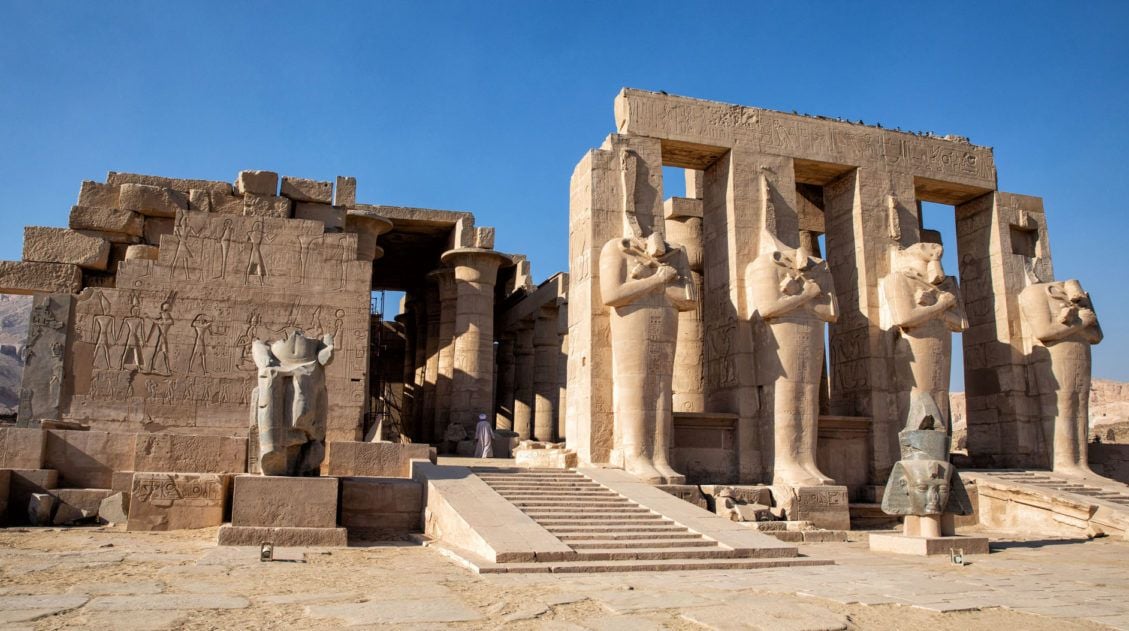
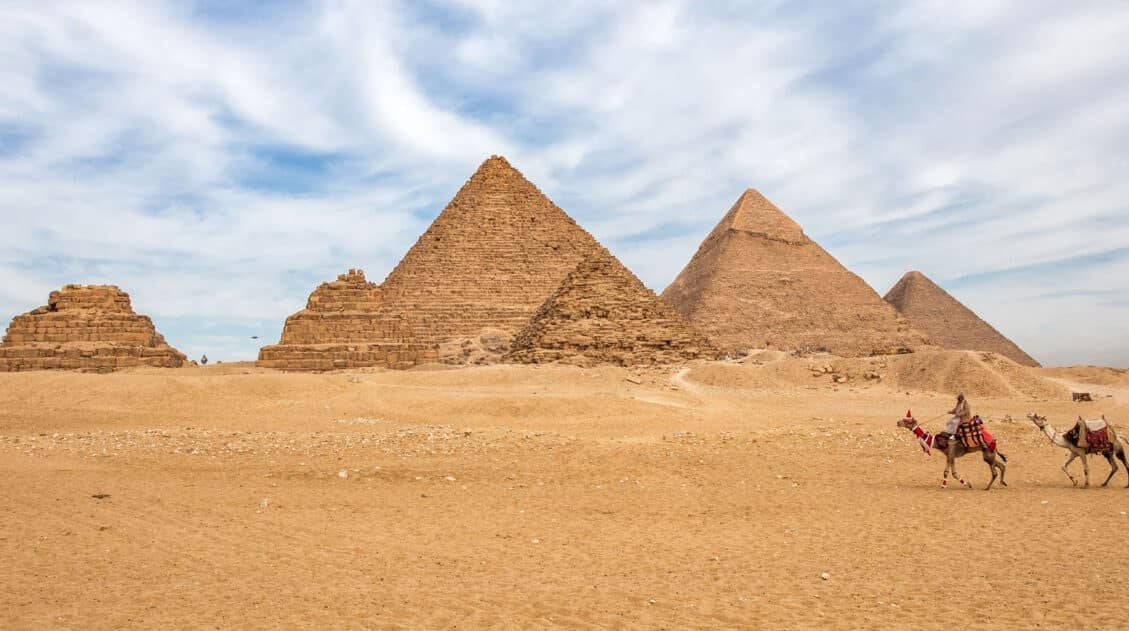
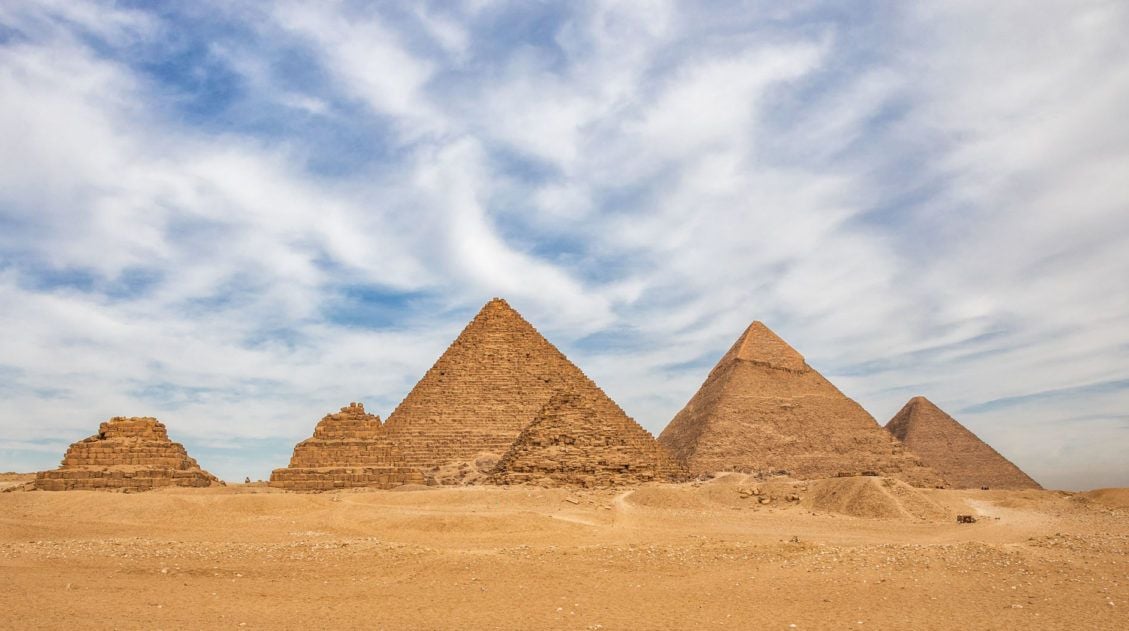
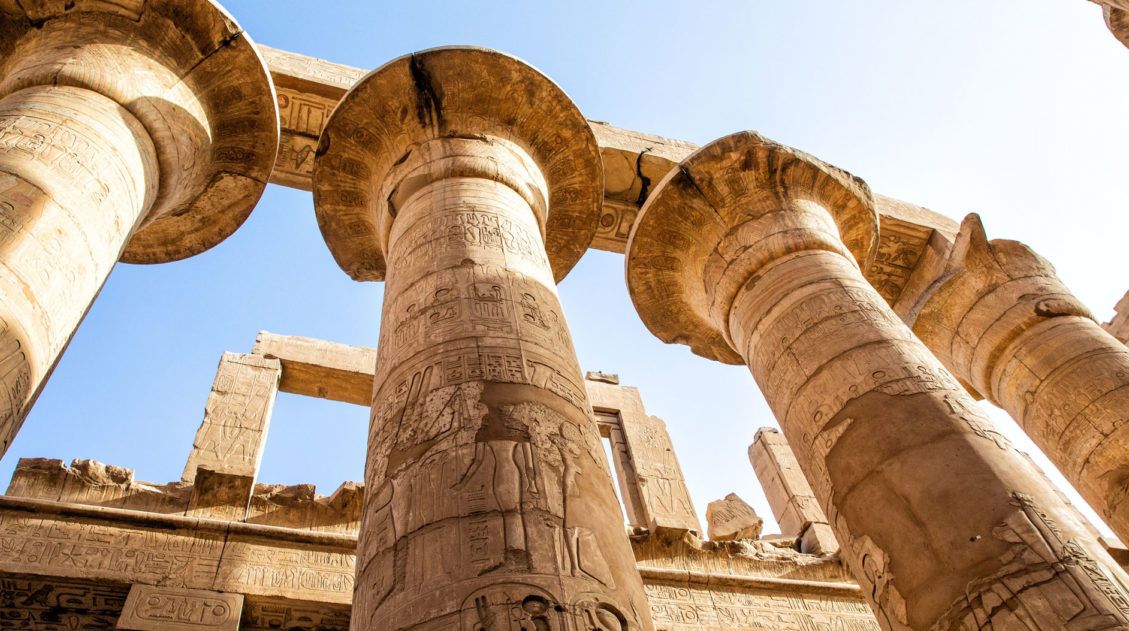
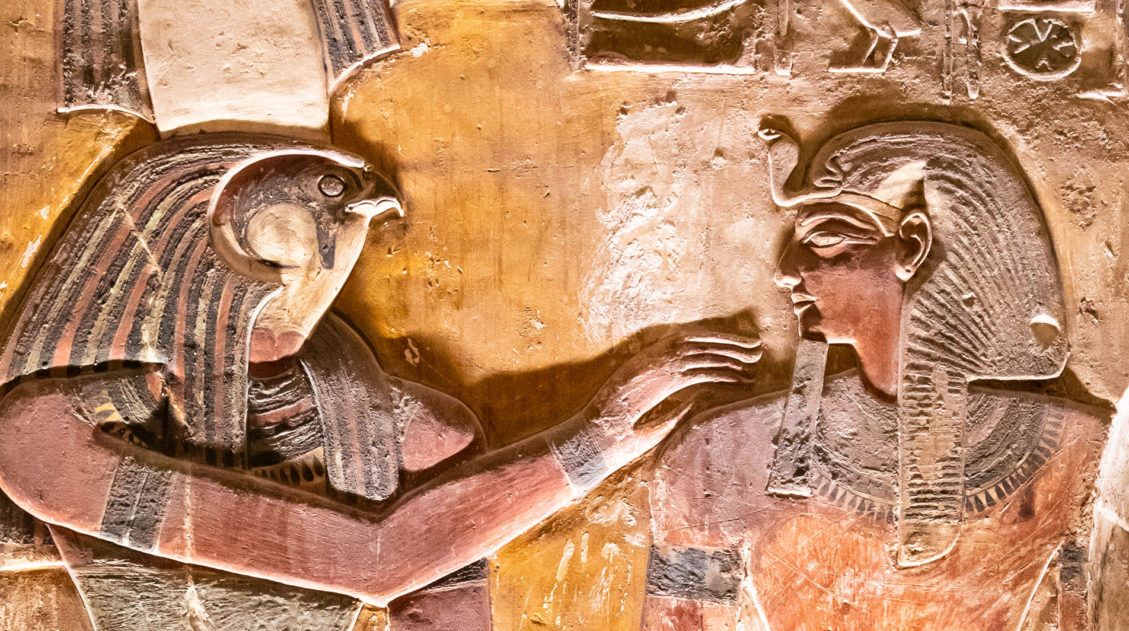
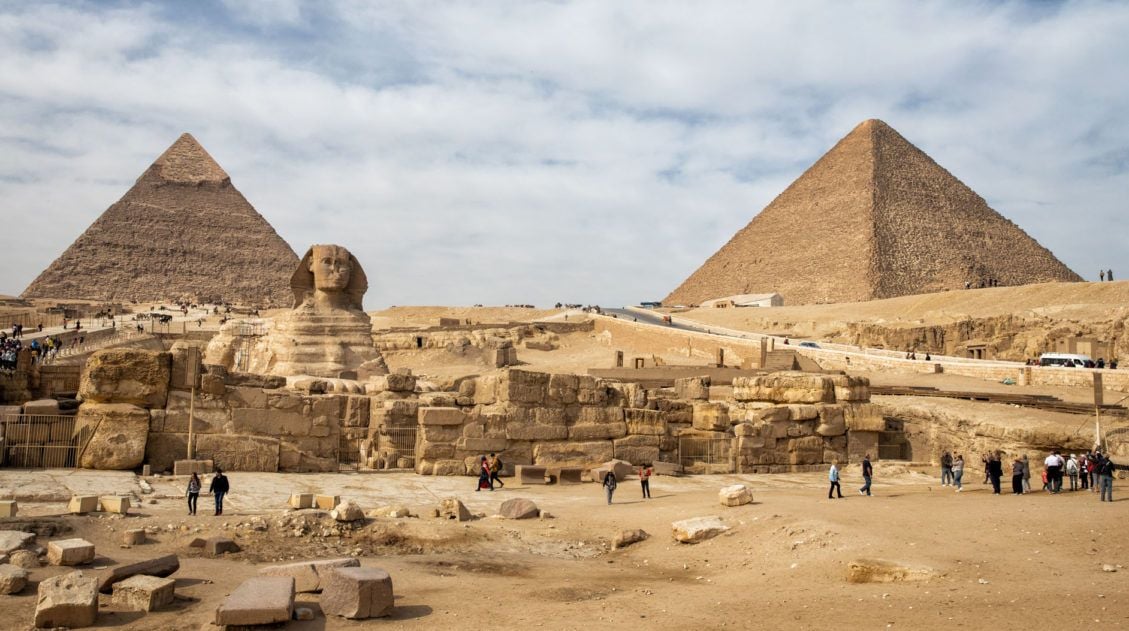
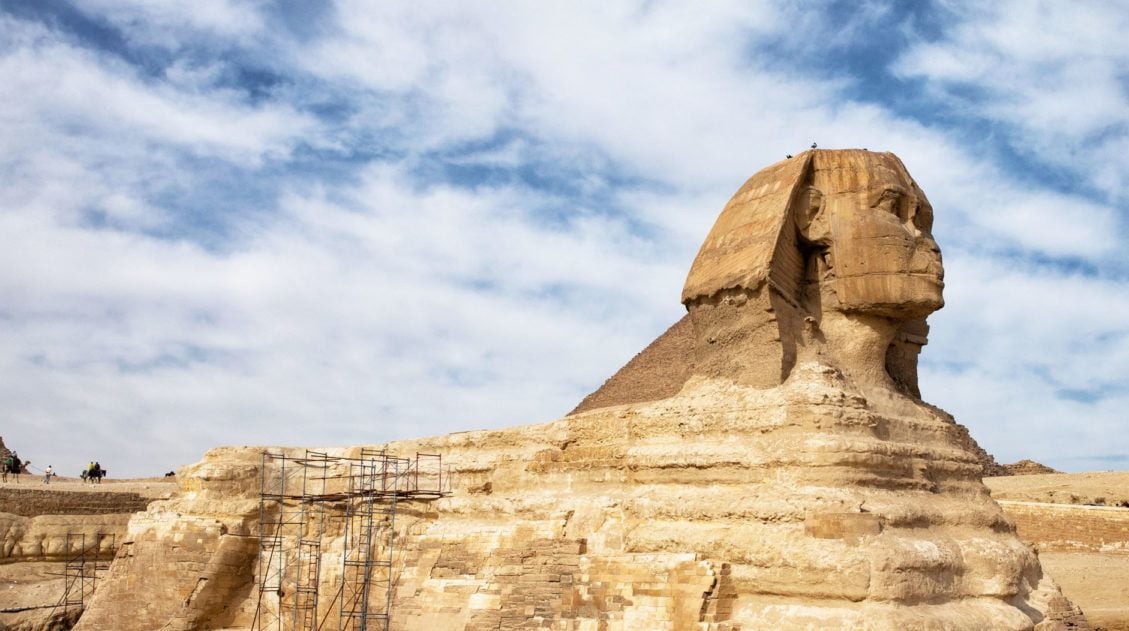
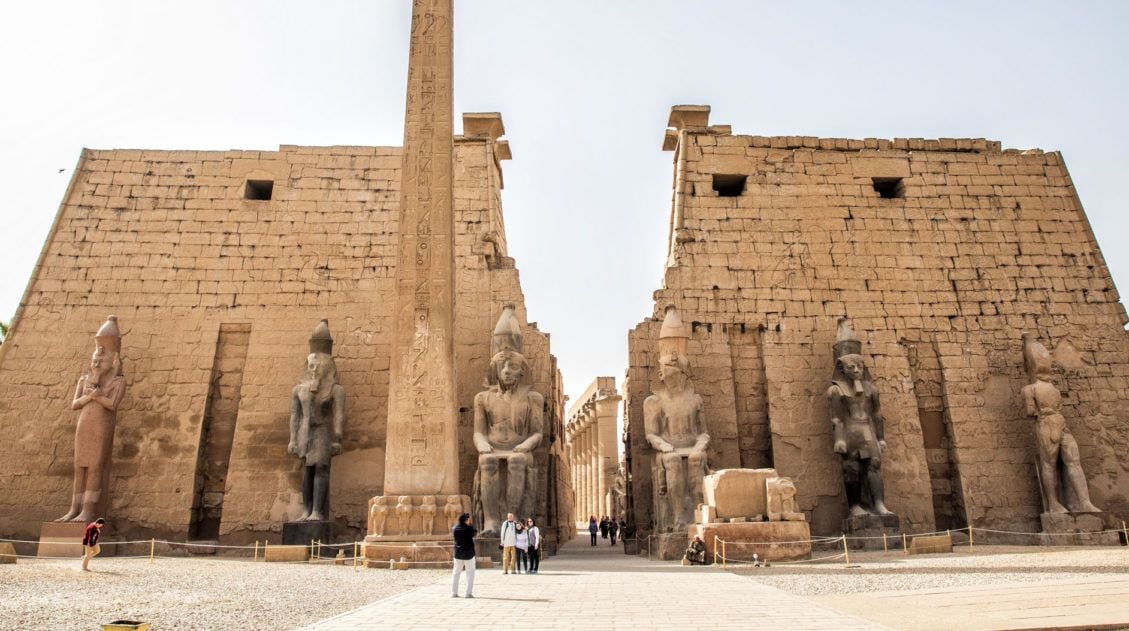
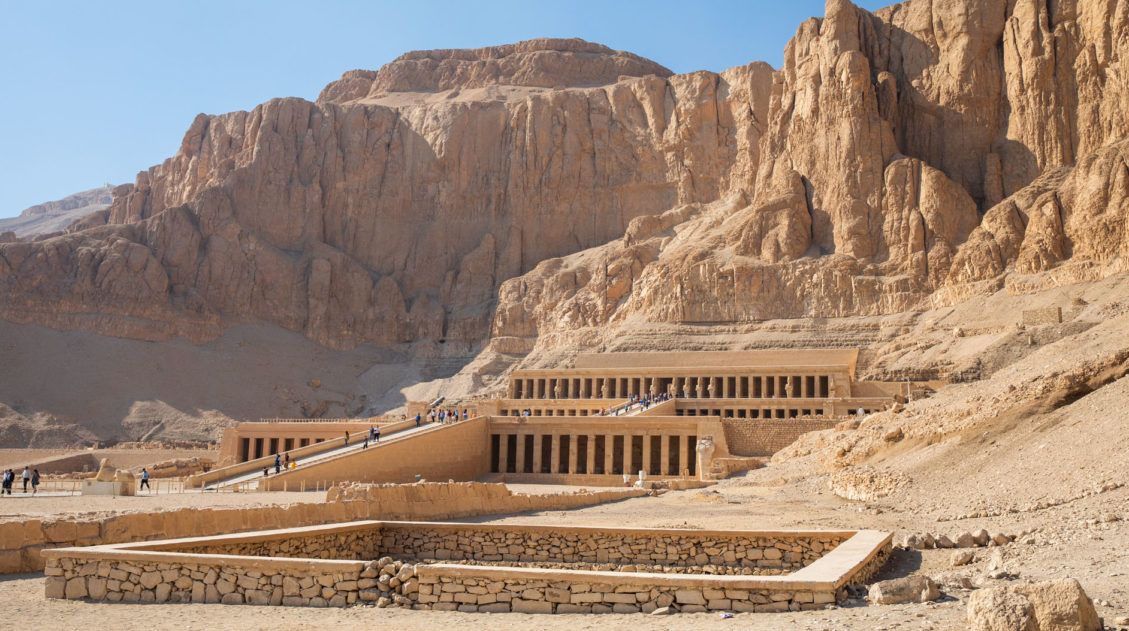
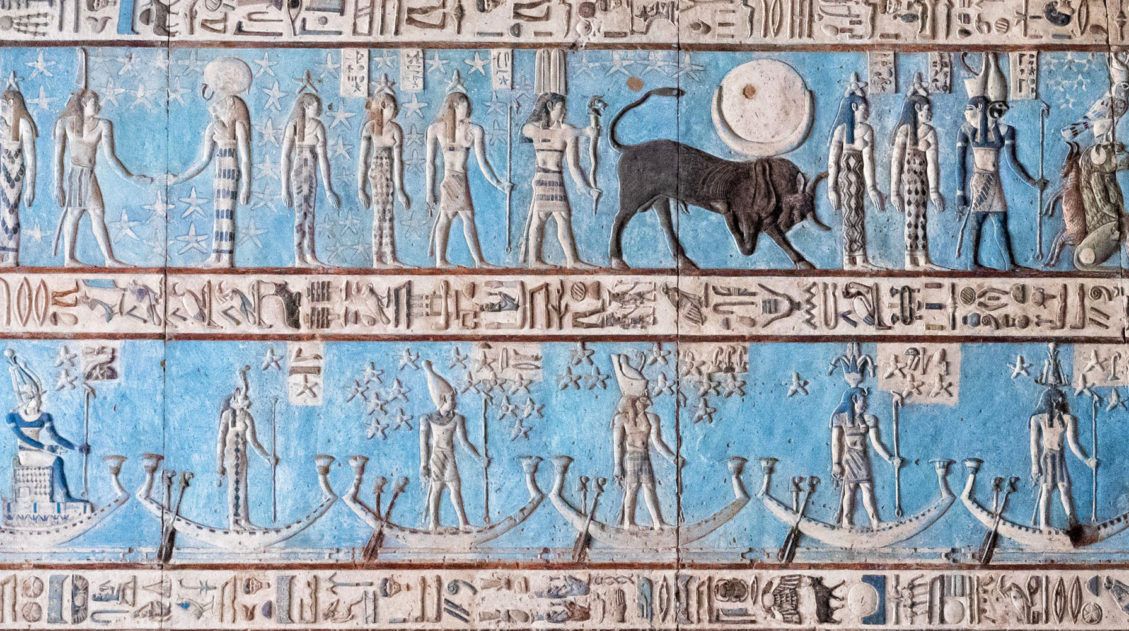
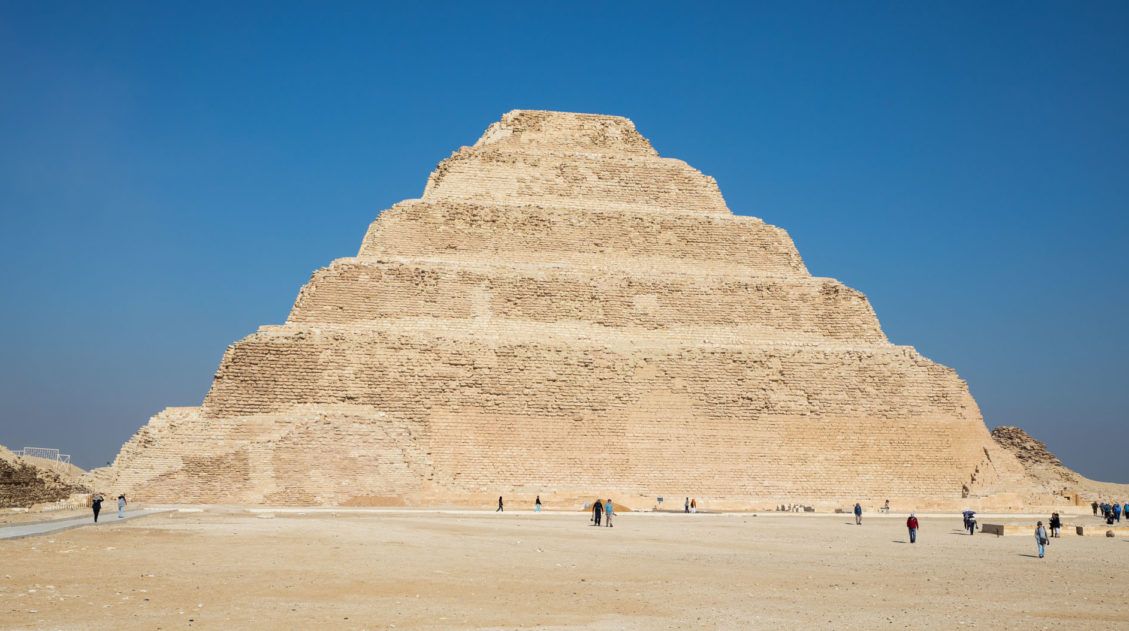
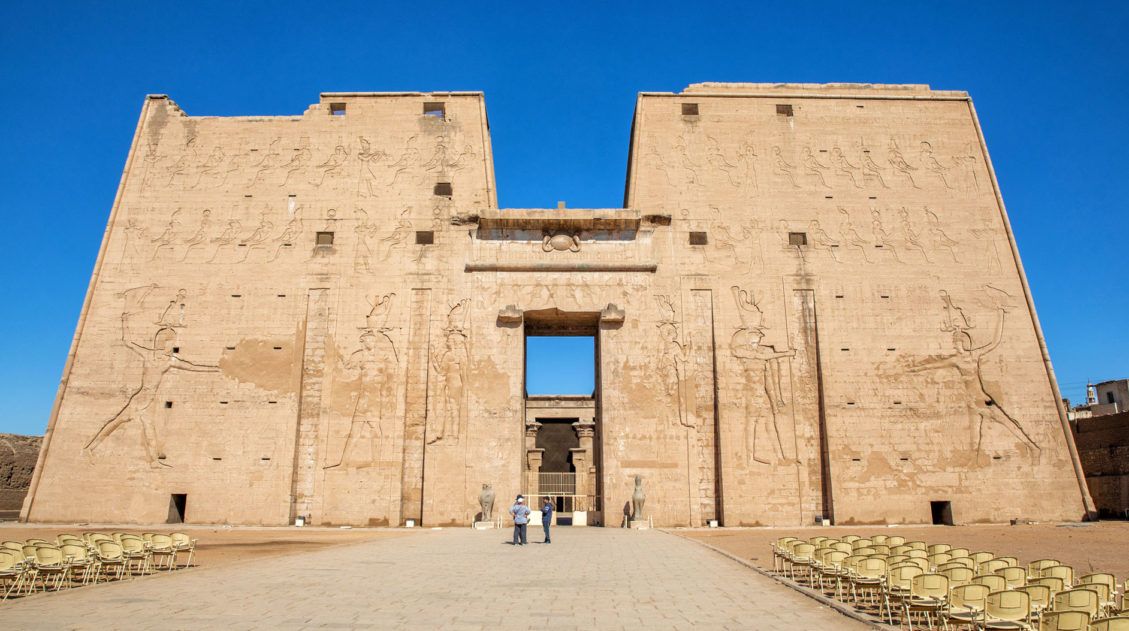
Comments 73